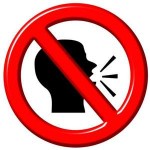 Florida lawyers have filed suit in a Tallahassee federal court challenging the constitutionality of, among other new disciplinary rules, those that prohibit a lawyer from “stating or implying” that the lawyer is a “specialist, an expert, or other variation of those terms” unless the lawyer has been properly certified by the Florida Bar or a recognized certifying body. See Fl. Rules of Prof’l Conduct Rule 4-7.14(a)(4). The complaint notes that social media websites such as LinkedIn “automatically categorize lawyers based on their ‘specialties.'” In so doing, the lawyers argue that Florida’s new rules violate the First Amendment by unnecessarily banning commercial speech that is not false or misleading:
Florida lawyers have filed suit in a Tallahassee federal court challenging the constitutionality of, among other new disciplinary rules, those that prohibit a lawyer from “stating or implying” that the lawyer is a “specialist, an expert, or other variation of those terms” unless the lawyer has been properly certified by the Florida Bar or a recognized certifying body. See Fl. Rules of Prof’l Conduct Rule 4-7.14(a)(4). The complaint notes that social media websites such as LinkedIn “automatically categorize lawyers based on their ‘specialties.'” In so doing, the lawyers argue that Florida’s new rules violate the First Amendment by unnecessarily banning commercial speech that is not false or misleading:
Regardless of whether the prohibited speech is treated as commercial or political, Florida’s restrictions cannot survive First Amendment scrutiny. There is no evidence that the prohibited speech is misleading or harmful to consumers. Florida has no legitimate interest in prohibiting the speech; and its advertising rules do not directly advance—and are far more extensive than necessary to serve—any interest it might claim. See Central Hudson Gas & Elec. Corp. v. Pub. Serv. Comm’n of New York, 447 U.S. 557 (1980).
See Searcy v. The Florida Bar (N.D. Fl. filed Dec. 10, 2013).
Louisiana lawyers should follow the progress of this lawsuit. Like the corresponding Florida rule, Louisiana Rule 7.2(c)(5) provides that: “a lawyer shall not state or imply that the lawyer is ‘certified,’ ‘board certified,’ an ‘expert’ or a ‘specialist’” unless the lawyer is officially certified. As discussed in an earlier post, the clear purpose of this rule is to prohibit false claims of official certification by the Louisiana Board of Legal Specialization. However, most lawyers who use the terms “expert” or “specialist” to describe their areas of practice don’t intend to suggest that the Louisiana Board of Legal Specialization, or any other organization, has formally certified them. Nevertheless, Louisiana’s Office of Disciplinary Counsel has aggressively pursued lawyers who have used such words harmlessly on their websites. See, e.g., In re Laughlin, LADB No. 12-DB-08. If these Florida lawyers are successful, a similar civil-rights suit can be expected here.
